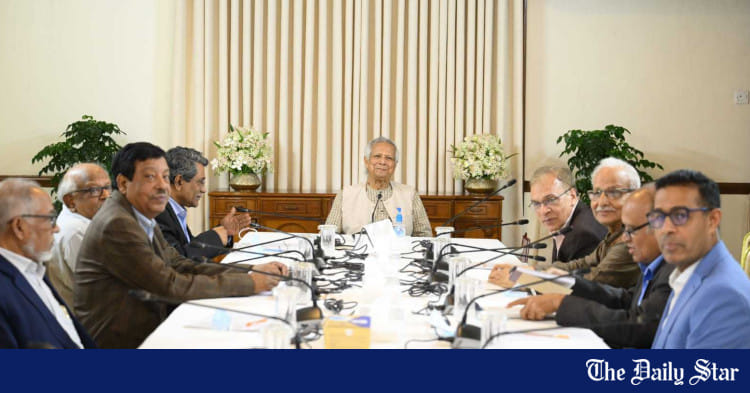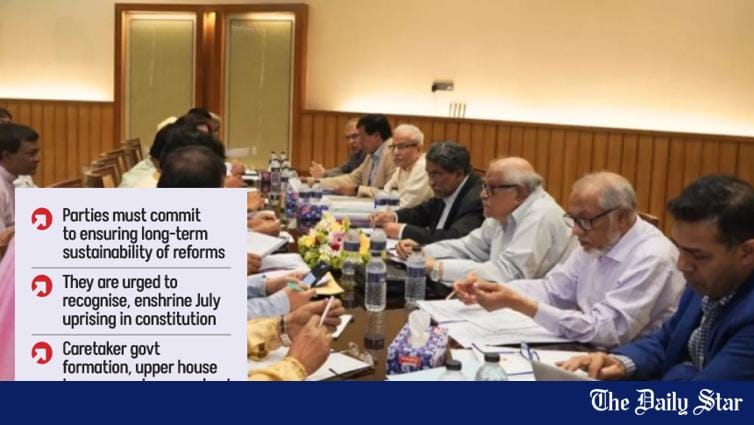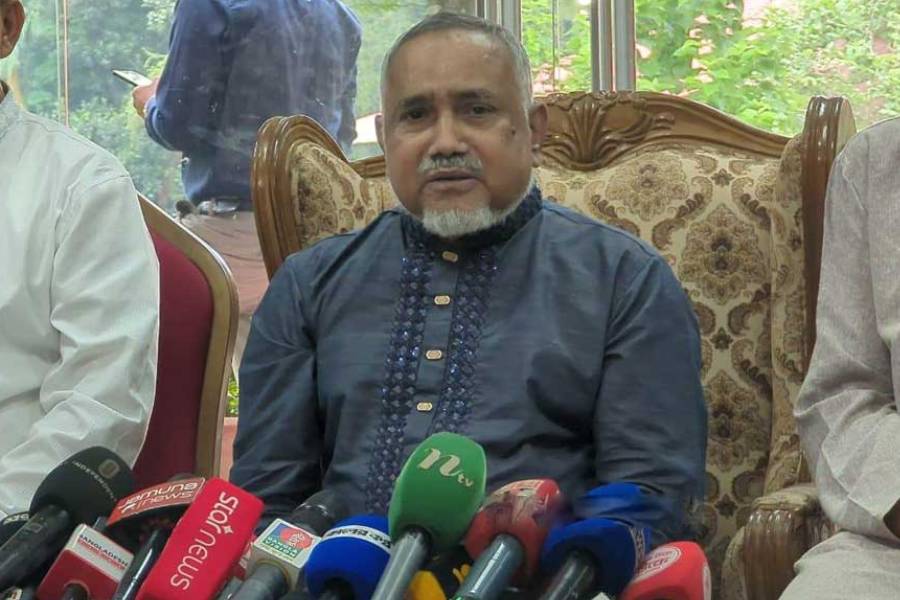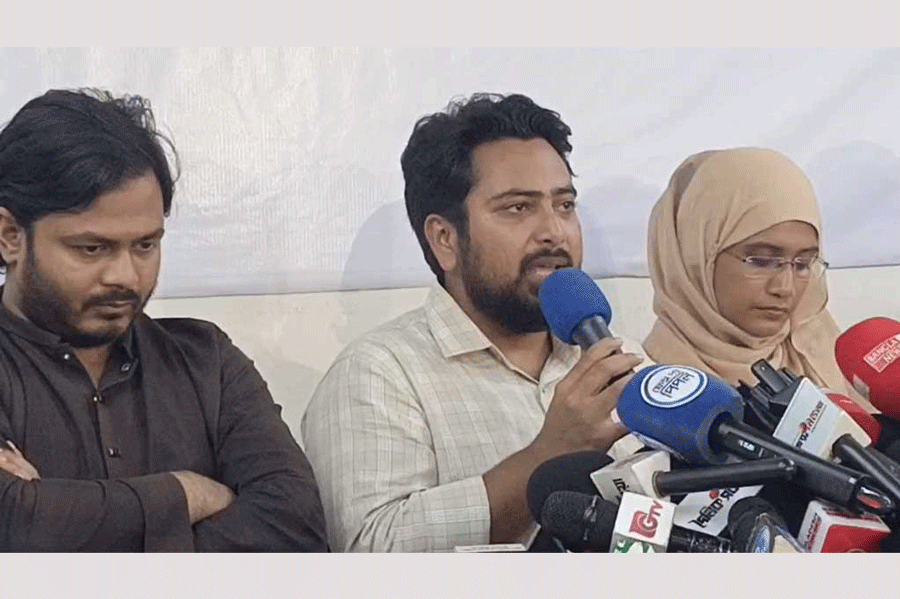Saif
Senior Member
- Messages
- 17,442
- Likes
- 8,381
- Nation

- Residence

- Axis Group


No scope to avoid fundamental reforms: Yunus
Conveys optimism commission will be able to formulate July charter within expected timeframe
No scope to avoid fundamental reforms: Yunus

Photo: PID
There is no scope to avoid fundamental reforms of the state's key structures, said Chief Adviser and Chairman of the National Consensus Commission Prof Muhammad Yunus today.
The statement came during a meeting held tonight at the state guest house Jamuna, as per meeting insiders.
According to them, by "fundamental reforms," the chief adviser referred to three key issues: establishing a proportionally representative upper house, outlining in the constitution the structure of important constitutional and statutory bodies, and ensuring women's representation in parliament through direct elections.
He emphasised that these core reforms are non-negotiable and must be addressed.
Yunus also expressed satisfaction over the progress made in the ongoing political dialogues initiated by the commission on state reform.
He hoped that, at the current pace, a national charter could be drafted within the stipulated timeframe.
At the meeting, Vice Chairman of the commission Prof Ali Riaz presented a detailed report on the ongoing dialogue process.
He outlined the challenges and points where discussions have stalled. In response, the CA offered several recommendations to help overcome the hurdles.
Commission members also informed that the chief adviser that political parties have entrusted the commission with the authority to make a final decision regarding the formation of a bicameral parliament.
As a result, the commission is expected to make a conclusive decision on the matter soon.
A press release from the CA's press wing said Yunus instructed the commission to keep the process of drafting the July Charter transparent and accessible to the public.
The chief adviser was briefed on the progress of the consensus commission's work, and members informed him that every effort is being made to finalise the July Charter within the shortest possible time.
Yunus extended his appreciation to the members of the commission for their commitment and dedicated efforts.
The initiative has received widespread praise, he said.
"This is a historic moment," he said, adding that, "The aspirations born from mass uprisings are being reflected through this initiative. Therefore, the entire process must remain transparent and accessible to the people."
Ali Riaz informed the chief adviser that consensus has been reached on eight agenda points during the second round of political dialogues. Discussions are ongoing to reach agreement on seven additional issues.
"We briefed him accordingly, and he expressed satisfaction with the progress," Riaz added.
He also said the commission had presented the various arguments raised by political parties on the unresolved issues.
Photo: PID
There is no scope to avoid fundamental reforms of the state's key structures, said Chief Adviser and Chairman of the National Consensus Commission Prof Muhammad Yunus today.
The statement came during a meeting held tonight at the state guest house Jamuna, as per meeting insiders.
According to them, by "fundamental reforms," the chief adviser referred to three key issues: establishing a proportionally representative upper house, outlining in the constitution the structure of important constitutional and statutory bodies, and ensuring women's representation in parliament through direct elections.
He emphasised that these core reforms are non-negotiable and must be addressed.
Yunus also expressed satisfaction over the progress made in the ongoing political dialogues initiated by the commission on state reform.
He hoped that, at the current pace, a national charter could be drafted within the stipulated timeframe.
At the meeting, Vice Chairman of the commission Prof Ali Riaz presented a detailed report on the ongoing dialogue process.
He outlined the challenges and points where discussions have stalled. In response, the CA offered several recommendations to help overcome the hurdles.
Commission members also informed that the chief adviser that political parties have entrusted the commission with the authority to make a final decision regarding the formation of a bicameral parliament.
As a result, the commission is expected to make a conclusive decision on the matter soon.
A press release from the CA's press wing said Yunus instructed the commission to keep the process of drafting the July Charter transparent and accessible to the public.
The chief adviser was briefed on the progress of the consensus commission's work, and members informed him that every effort is being made to finalise the July Charter within the shortest possible time.
Yunus extended his appreciation to the members of the commission for their commitment and dedicated efforts.
The initiative has received widespread praise, he said.
"This is a historic moment," he said, adding that, "The aspirations born from mass uprisings are being reflected through this initiative. Therefore, the entire process must remain transparent and accessible to the people."
Ali Riaz informed the chief adviser that consensus has been reached on eight agenda points during the second round of political dialogues. Discussions are ongoing to reach agreement on seven additional issues.
"We briefed him accordingly, and he expressed satisfaction with the progress," Riaz added.
He also said the commission had presented the various arguments raised by political parties on the unresolved issues.








